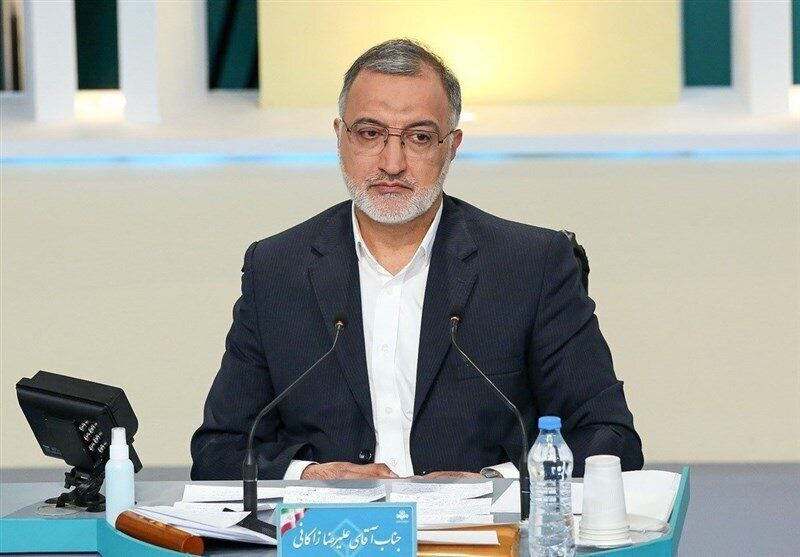TEHRAN – Candidates in Iran's 2024 presidential election appeared on state television again on Saturday to appeal to the support of Iran's more than 60 million voters.
During a televised political debate, Alireza Zakhani, aka “Tank of the Revolution,” reiterated his strong criticism of the 2015 Iran nuclear deal, officially known as the Joint Comprehensive Plan of Action (JCPOA).
Zakani criticized former Foreign Minister Mohammad Javad Zarif for lacking confidence and agreeing to the agreement without fully reading or understanding the document and its provisions.
“The JCPOA reflects Iran's lack of confidence in its domestic capabilities and its desire to comply with the existing international order,” the presidential candidate said. “Another problem with the JCPOA is the lack of thorough analysis and expertise. It became clear that no expert analysis was conducted by the JCPOA committee, and the foreign minister at the time admitted that he had not read the JCPOA,” he added. He stressed that he would not sign an agreement like the JCPOA, even with a “brother” or, even more so, with a long-time enemy like the United States.
The candidate's remarks were disputed by the show's experts, who said the JCPOA was not the result of just one man's efforts. “At the time, the authorities and the country's elite unanimously agreed that such an agreement should be concluded with Western countries,” the experts said.
The Joint Comprehensive Plan of Action is an agreement on Iran's nuclear program signed in 2015 by Iran, Russia, China, the United States, the United Kingdom, France and Germany. The deal limited Tehran's nuclear activities in exchange for the end of sanctions against Iran. The Joint Comprehensive Plan of Action is currently in turmoil after Washington unilaterally withdrew from the agreement in 2018 and reimposed sanctions on Iran. European countries that signed the agreement have also suspended all trade with the West Asian country without officially withdrawing from it.
The JCPOA has come under intense scrutiny and criticism from various analysts and politicians, who say that ultimately, the agreement was only used to put pressure on Iran. It is hard to argue with such statements, given that Iran has repeatedly been accused of “non-compliance” with the agreement, even as Western countries have completely ignored it.
Reform candidate says he's a “fundamentalist” at heart
Massoud Pezeshkian, the reformists' only hope of regaining relevance and relevance, arrived in the religious city of Qom on Saturday to meet with influential figures in the city. Pezeshkian has held several meetings with prominent individuals and organizations over the past few days to rally support.
But the former health minister has yet to make an impact in his television appearances – his recent TV speech, in which he sought to appeal to traditional conservative voters by describing himself as a “fundamentalist” who believes in justice, again lacked depth and detail.
The rest of the remarks were about his personal life and upbringing, which he described as very humbling and difficult. The presidential candidate also spoke at length about “freedom” and the “right to protest.”
Pezeshkian's critics say his statements and speeches so far have been similar to those of other reformist candidates who have run for president over the past two decades, and accuse him of relying on slogans to garner votes rather than outlining a plan or policies.

